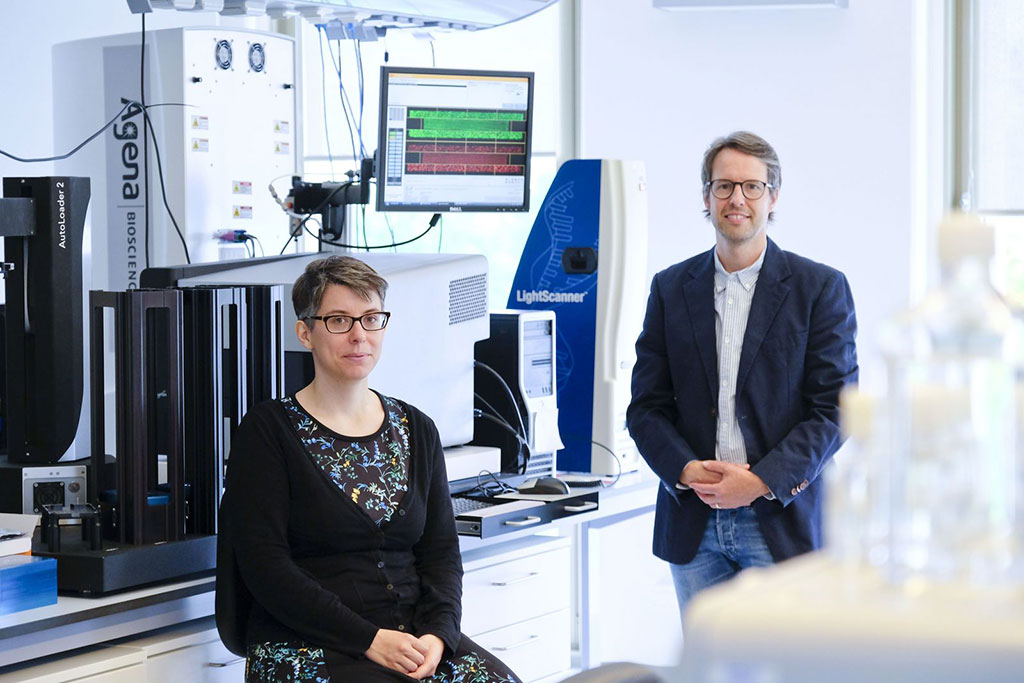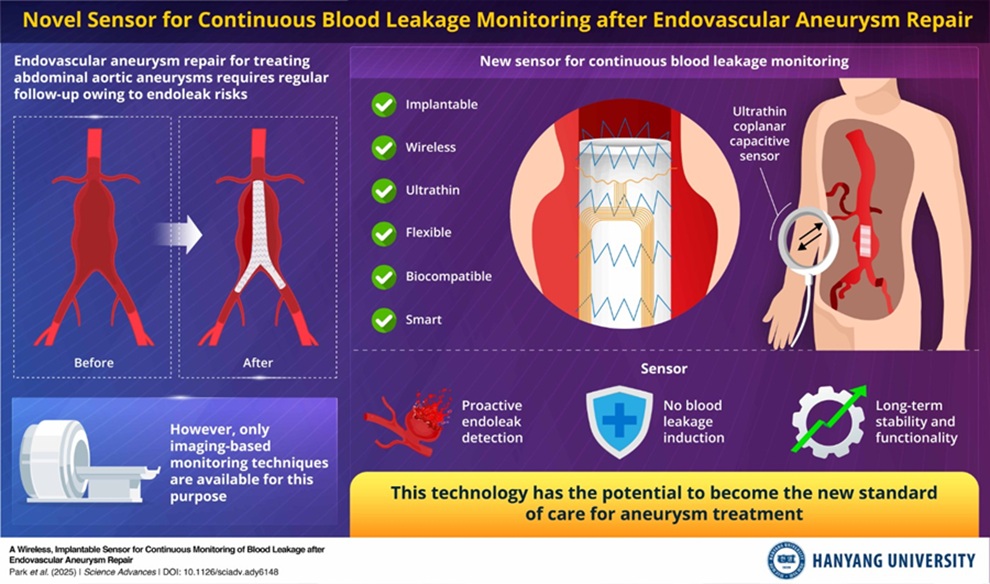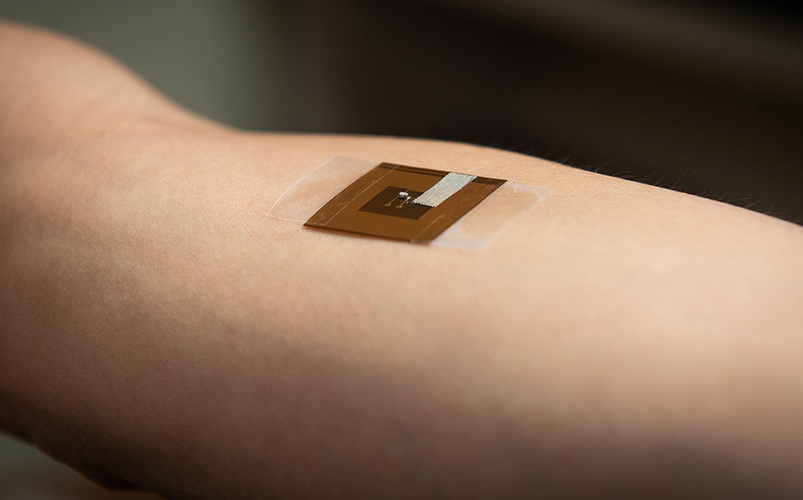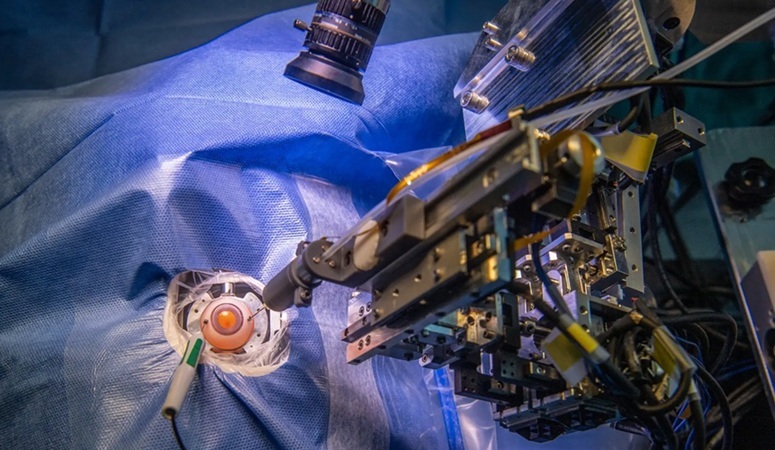Genes and Blood Type Determine Risk of COVID-19 Severity
|
By HospiMedica International staff writers Posted on 24 Jun 2020 |

Image: Prof. Dr. David Ellinghaus and Frauke Degenhardt, both first authors of the study (Photo courtesy of UKSH Kiel)
A team of researchers have found gene variants for severe course of COVID-19, indicating that blood group might have an influence on the severity of the disease’s symptoms.
The world's first large-scale genome-wide study conducted by scientists at the University Medical Center Schleswig-Holstein (UKSH Kiel, Germany) and the Kiel University (CAU Kiel, Germany), in cooperation with a research group from Norway, has found gene variants that significantly influence the course of the disease-one of them concerns the gene for the blood group trait. This suggests that different blood groups may be responsible for why some people become severely ill with COVID-19 while others show hardly any symptoms.
Doctors from several hospitals of the corona epicenters in Northern Italy and Spain, sent blood samples of a total of 1,980 intensive care COVID-19 patients who had to be treated with oxygen or connected to a ventilator. For the control group, 2,205 randomly selected women and men from the population of these countries were obtained. Within only three weeks, DNA was isolated from the blood samples and 8.5 million positions of the genetic material from each individual were measured with so-called biochips (SNP arrays). The study showed that people with blood group A had an approximately 50% higher risk of severe COVID-19 progression than people with other blood groups. In contrast, people with type 0 blood groups were almost 50% better protected against serious COVID-19 disease. Thus, the study confirmed for the first time by means of a comprehensive genome-wide analysis two earlier studies by international researchers who had already described a possible correlation between blood group characteristics and the disease using the blood serum of COVID-19 patients.
In addition to the significant abnormality in the AB0 blood group locus, the gene locus by which the individual blood group is determined, the researchers found an even higher effect strength for a genetic variation on chromosome 3. Which of the several candidate genes located in this locus is responsible for this cannot be determined precisely at present, but the analysis was able to show that carriers of the gene are at a twofold higher risk of contracting severe COVID-19 than people who do not carry this variation. Among the Italian and Spanish patients who were so ill that they not only had to be supplied with oxygen but also connected to a ventilator, a particularly high number carried this genetic disposition. A result that was also evident in the distribution of blood groups: Among the particularly seriously ill, there were also a particularly large number of people with blood group A.
“The results were very exciting and surprising for us. The region on chromosome 3 in particular had not previously been associated with COVID-19 by scientists. In other regions of the genome for which an effect on the disease had been suspected, no statistically significant differences were found between the healthy volunteers and the patients; neither in the chromosome section 6p21, which is associated with the immune system and many infectious diseases, nor in the gene IFITM3, which is associated with influenza,” said Prof. Dr. Andre Franke, Director of the Institute of Clinical Molecular Biology (IKMB) and member of the steering committee of the cluster of excellence "Precision Medicine in Chronic Inflammation" (PMI). “With chromosome 3 and the AB0 blood group locus we describe real causes for a severe course of COVID-19. Our results, therefore, create an excellent basis for the development of active substances that can target the candidate genes found. It has been proven that a clinical study in which a drug is tested has twice as much success if genetic evidence for the target is already available. The results could also contribute to an improved risk assessment for a severe course of COVID-19 in patients.”
Related Links:
University Medical Center Schleswig-Holstein (UKSH)
UKSH Kiel
The world's first large-scale genome-wide study conducted by scientists at the University Medical Center Schleswig-Holstein (UKSH Kiel, Germany) and the Kiel University (CAU Kiel, Germany), in cooperation with a research group from Norway, has found gene variants that significantly influence the course of the disease-one of them concerns the gene for the blood group trait. This suggests that different blood groups may be responsible for why some people become severely ill with COVID-19 while others show hardly any symptoms.
Doctors from several hospitals of the corona epicenters in Northern Italy and Spain, sent blood samples of a total of 1,980 intensive care COVID-19 patients who had to be treated with oxygen or connected to a ventilator. For the control group, 2,205 randomly selected women and men from the population of these countries were obtained. Within only three weeks, DNA was isolated from the blood samples and 8.5 million positions of the genetic material from each individual were measured with so-called biochips (SNP arrays). The study showed that people with blood group A had an approximately 50% higher risk of severe COVID-19 progression than people with other blood groups. In contrast, people with type 0 blood groups were almost 50% better protected against serious COVID-19 disease. Thus, the study confirmed for the first time by means of a comprehensive genome-wide analysis two earlier studies by international researchers who had already described a possible correlation between blood group characteristics and the disease using the blood serum of COVID-19 patients.
In addition to the significant abnormality in the AB0 blood group locus, the gene locus by which the individual blood group is determined, the researchers found an even higher effect strength for a genetic variation on chromosome 3. Which of the several candidate genes located in this locus is responsible for this cannot be determined precisely at present, but the analysis was able to show that carriers of the gene are at a twofold higher risk of contracting severe COVID-19 than people who do not carry this variation. Among the Italian and Spanish patients who were so ill that they not only had to be supplied with oxygen but also connected to a ventilator, a particularly high number carried this genetic disposition. A result that was also evident in the distribution of blood groups: Among the particularly seriously ill, there were also a particularly large number of people with blood group A.
“The results were very exciting and surprising for us. The region on chromosome 3 in particular had not previously been associated with COVID-19 by scientists. In other regions of the genome for which an effect on the disease had been suspected, no statistically significant differences were found between the healthy volunteers and the patients; neither in the chromosome section 6p21, which is associated with the immune system and many infectious diseases, nor in the gene IFITM3, which is associated with influenza,” said Prof. Dr. Andre Franke, Director of the Institute of Clinical Molecular Biology (IKMB) and member of the steering committee of the cluster of excellence "Precision Medicine in Chronic Inflammation" (PMI). “With chromosome 3 and the AB0 blood group locus we describe real causes for a severe course of COVID-19. Our results, therefore, create an excellent basis for the development of active substances that can target the candidate genes found. It has been proven that a clinical study in which a drug is tested has twice as much success if genetic evidence for the target is already available. The results could also contribute to an improved risk assessment for a severe course of COVID-19 in patients.”
Related Links:
University Medical Center Schleswig-Holstein (UKSH)
UKSH Kiel
Latest COVID-19 News
- Low-Cost System Detects SARS-CoV-2 Virus in Hospital Air Using High-Tech Bubbles
- World's First Inhalable COVID-19 Vaccine Approved in China
- COVID-19 Vaccine Patch Fights SARS-CoV-2 Variants Better than Needles
- Blood Viscosity Testing Can Predict Risk of Death in Hospitalized COVID-19 Patients
- ‘Covid Computer’ Uses AI to Detect COVID-19 from Chest CT Scans
- MRI Lung-Imaging Technique Shows Cause of Long-COVID Symptoms
- Chest CT Scans of COVID-19 Patients Could Help Distinguish Between SARS-CoV-2 Variants
- Specialized MRI Detects Lung Abnormalities in Non-Hospitalized Long COVID Patients
- AI Algorithm Identifies Hospitalized Patients at Highest Risk of Dying From COVID-19
- Sweat Sensor Detects Key Biomarkers That Provide Early Warning of COVID-19 and Flu
- Study Assesses Impact of COVID-19 on Ventilation/Perfusion Scintigraphy
- CT Imaging Study Finds Vaccination Reduces Risk of COVID-19 Associated Pulmonary Embolism
- Third Day in Hospital a ‘Tipping Point’ in Severity of COVID-19 Pneumonia
- Longer Interval Between COVID-19 Vaccines Generates Up to Nine Times as Many Antibodies
- AI Model for Monitoring COVID-19 Predicts Mortality Within First 30 Days of Admission
- AI Predicts COVID Prognosis at Near-Expert Level Based Off CT Scans
Channels
Critical Care
view channel
CPR Guidelines Updated for Pediatric and Neonatal Emergency Care and Resuscitation
Cardiac arrest in infants and children remains a leading cause of pediatric emergencies, with more than 7,000 out-of-hospital and 20,000 in-hospital cardiac arrests occurring annually in the United States.... Read more
Ingestible Capsule Monitors Intestinal Inflammation
Acute mesenteric ischemia—a life-threatening condition caused by blocked blood flow to the intestines—remains difficult to diagnose early because its symptoms often mimic common digestive problems.... Read more
Wireless Implantable Sensor Enables Continuous Endoleak Monitoring
Endovascular aneurysm repair (EVAR) is a life-saving, minimally invasive treatment for abdominal aortic aneurysms—balloon-like bulges in the aorta that can rupture with fatal consequences.... Read more
Wearable Patch for Early Skin Cancer Detection to Reduce Unnecessary Biopsies
Skin cancer remains one of the most dangerous and common cancers worldwide, with early detection crucial for improving survival rates. Traditional diagnostic methods—visual inspections, imaging, and biopsies—can... Read moreSurgical Techniques
view channel
Robotic Assistant Delivers Ultra-Precision Injections with Rapid Setup Times
Age-related macular degeneration (AMD) is a leading cause of blindness worldwide, affecting nearly 200 million people, a figure expected to rise to 280 million by 2040. Current treatment involves doctors... Read more
Minimally Invasive Endoscopic Surgery Improves Severe Stroke Outcomes
Intracerebral hemorrhage, a type of stroke caused by bleeding deep within the brain, remains one of the most challenging neurological emergencies to treat. Accounting for about 15% of all strokes, it carries... Read morePatient Care
view channel
Revolutionary Automatic IV-Line Flushing Device to Enhance Infusion Care
More than 80% of in-hospital patients receive intravenous (IV) therapy. Every dose of IV medicine delivered in a small volume (<250 mL) infusion bag should be followed by subsequent flushing to ensure... Read more
VR Training Tool Combats Contamination of Portable Medical Equipment
Healthcare-associated infections (HAIs) impact one in every 31 patients, cause nearly 100,000 deaths each year, and cost USD 28.4 billion in direct medical expenses. Notably, up to 75% of these infections... Read more
Portable Biosensor Platform to Reduce Hospital-Acquired Infections
Approximately 4 million patients in the European Union acquire healthcare-associated infections (HAIs) or nosocomial infections each year, with around 37,000 deaths directly resulting from these infections,... Read moreFirst-Of-Its-Kind Portable Germicidal Light Technology Disinfects High-Touch Clinical Surfaces in Seconds
Reducing healthcare-acquired infections (HAIs) remains a pressing issue within global healthcare systems. In the United States alone, 1.7 million patients contract HAIs annually, leading to approximately... Read moreHealth IT
view channel
Printable Molecule-Selective Nanoparticles Enable Mass Production of Wearable Biosensors
The future of medicine is likely to focus on the personalization of healthcare—understanding exactly what an individual requires and delivering the appropriate combination of nutrients, metabolites, and... Read moreBusiness
view channel
Philips and Masimo Partner to Advance Patient Monitoring Measurement Technologies
Royal Philips (Amsterdam, Netherlands) and Masimo (Irvine, California, USA) have renewed their multi-year strategic collaboration, combining Philips’ expertise in patient monitoring with Masimo’s noninvasive... Read more
B. Braun Acquires Digital Microsurgery Company True Digital Surgery
The high-end microsurgery market in neurosurgery, spine, and ENT is undergoing a significant transformation. Traditional analog microscopes are giving way to digital exoscopes, which provide improved visualization,... Read more
CMEF 2025 to Promote Holistic and High-Quality Development of Medical and Health Industry
The 92nd China International Medical Equipment Fair (CMEF 2025) Autumn Exhibition is scheduled to be held from September 26 to 29 at the China Import and Export Fair Complex (Canton Fair Complex) in Guangzhou.... Read more















